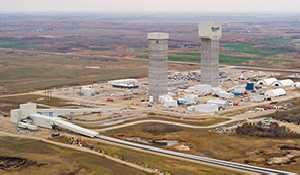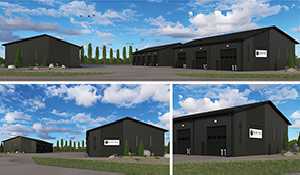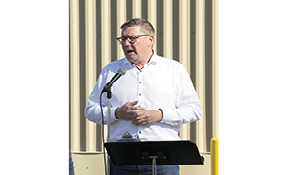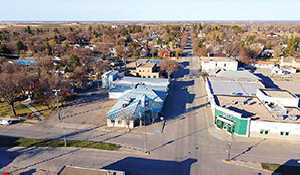NEB starts the clock on Energy East
June 21, 2016, 2:06 am
Kevin Weedmark


The National Energy Board (NEB) is starting the clock on its review of the Energy East Pipeline Project.
The project would have an impact on southeast Saskatchewan and southwest Manitoba. It would include a 1,050,000 barrel tank farm at TransCanada’s Moosomin compressor station, and a feeder pipeline from Cromer to Moosomin.
TransCanada has also proposed an additional pipeline, the Upland Pipeline, to bring oil from Williston, North Dakota to the Moosomin compressor station, but that proposal would require the endorsement of the US State Department as it crosses the international border.
The Energy East review will include opportunities for the general public to provide their input and for hearing participants to verbally question the applicants.
There will also be an assessment of upstream greenhouse gas emissions. This review started Thursday, June 16.
The NEB has determined that the project application is complete. The NEB will have 21 months to carry out its review. Once complete, the NEB must submit a report to the Minister of Natural Resources recommending whether the project should proceed along with recommended conditions. This report is due no later than March 16, 2018.
The hearings will kick off on August 8 in Saint John, New Brunswick with the first of several panel sessions that will take place along the route in New Brunswick, Québec, Ontario, Manitoba, Saskatchewan and Alberta.
These sessions will be the first opportunity for hearing participants to provide comments and to ask questions about the Energy East Project. There will be additional opportunities to share evidence, ask questions and provide input as the hearing progresses.
The NEB’s assessment of the Energy East Pipeline Project will also include enhanced engagement opportunities for both hearing participants and the general public. In addition to panel hearings, board members will be appointed to carry out public engagement activities, the NEB will survey hearing participants for their input on the design of the hearing and upstream greenhouse gas (GHGs) emissions will be assessed.
Souris-Moose Mountain MP Robert Kitchen said he is hopeful Energy East can move forward.
“I’m extremely hopeful that we will get some positive results as things go forward. It’s long overdue. It’s just been delays and delays and delays. I’m hoping it will move forward. It would make a big difference for us.”
Kitchen is hopeful that the Liberal government will honor any decision made by the National Energy Board.
“You sit here in the house and it’s hard to read what they’re going to do when all is said and done. They’ve talked about science. They’ve talked about having a fair and open process. They’ve put more barriers onto the review. If they get through the review and (the NEB) comes out in support of the pipeline, you would expect they would honor what they said and honor the decision.”
Earlier this year, the Minister of Natural Resources, as part of the Government of Canada’s Interim Measures for Pipeline Reviews, announced his intention to appoint new board members to help expand public engagement on the Energy East Project. Once appointed, these board members will travel along the pipeline route to gather public comments and input. Anyone will be able to participate. The public comments and input shared during this initiative will be included in a report to be submitted as evidence in the hearing.
The Government of Canada will assess the upstream GHG emissions associated with the project and make this information public. It is expected that the public, Indigenous peoples, governments and other interested parties will have opportunities to comment and provide input to this assessment. The NEB is working with Environment and Climate Change Canada on an enhanced public engagement process for the draft assessment of upstream GHGs for the Energy East Pipeline Project.



































